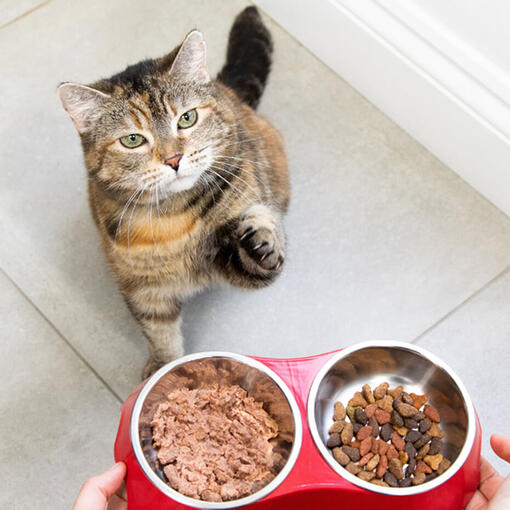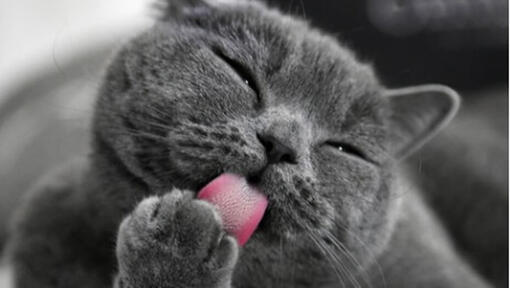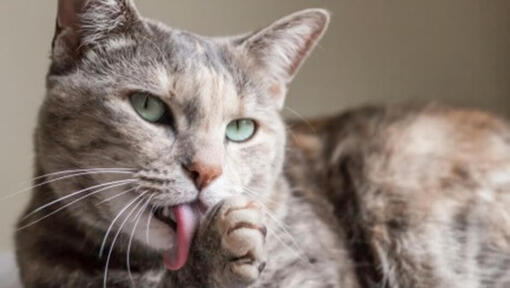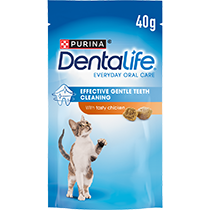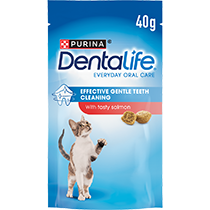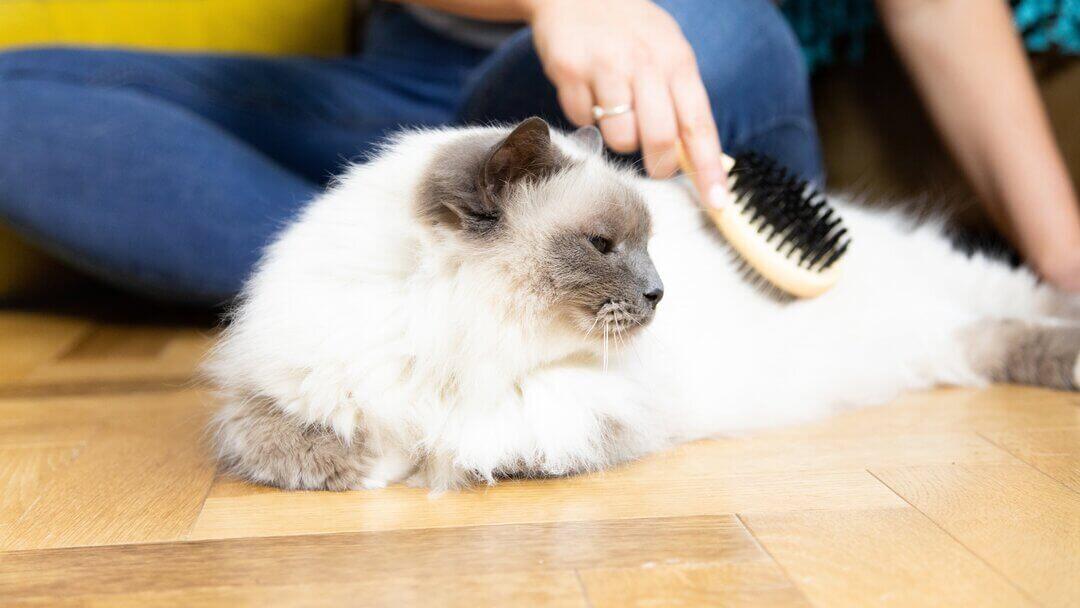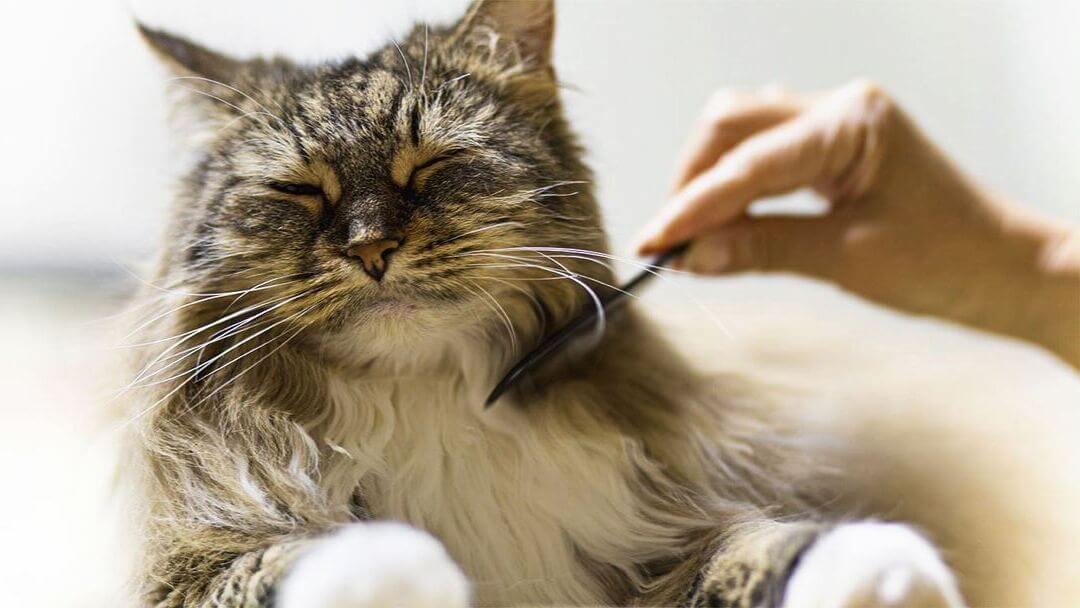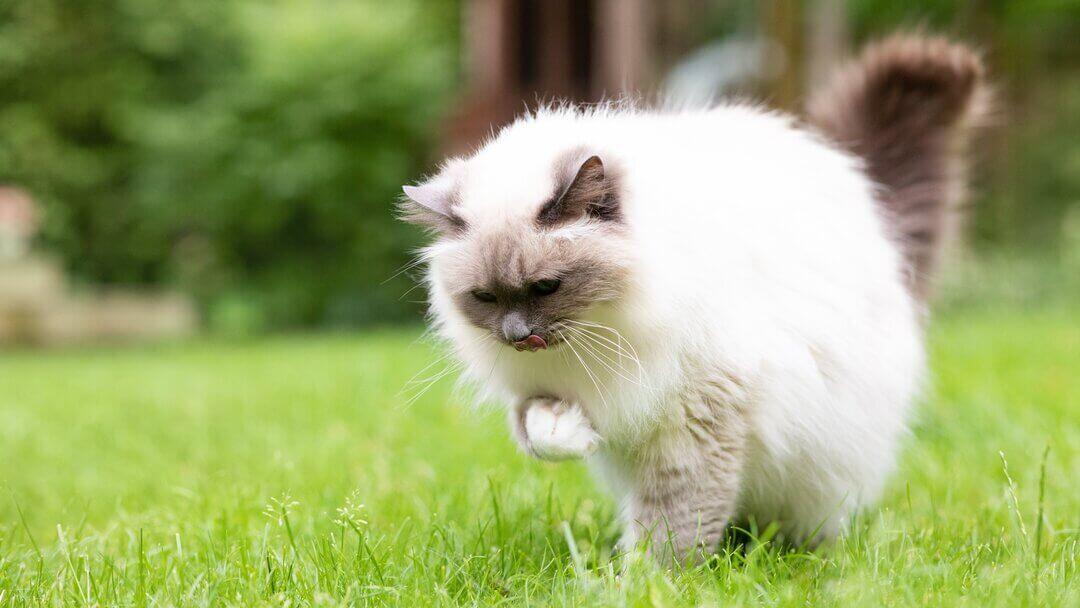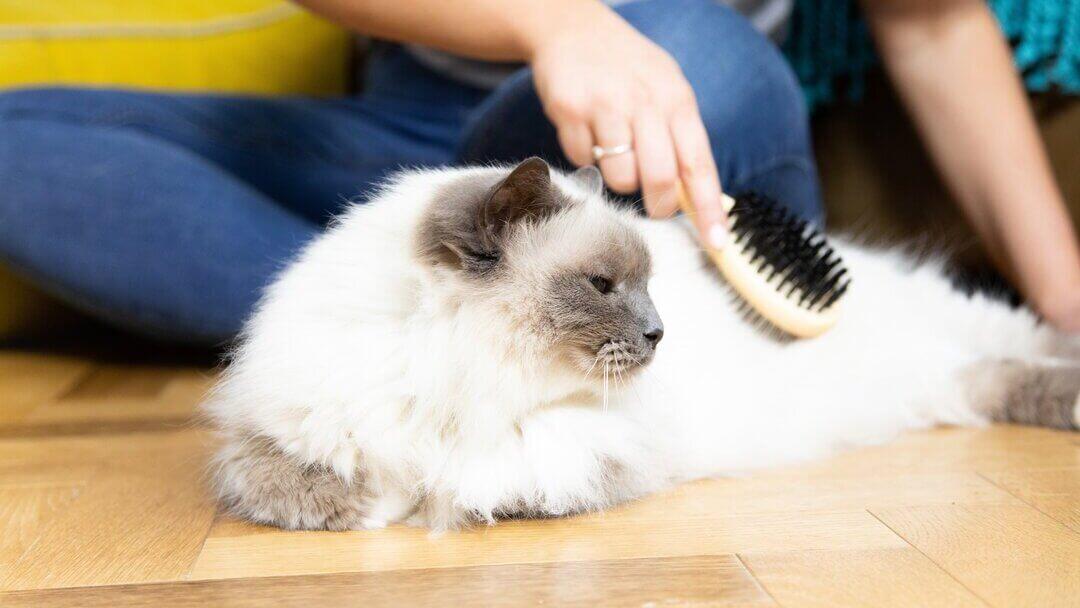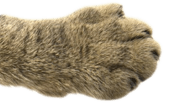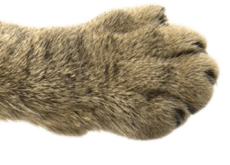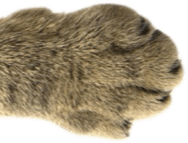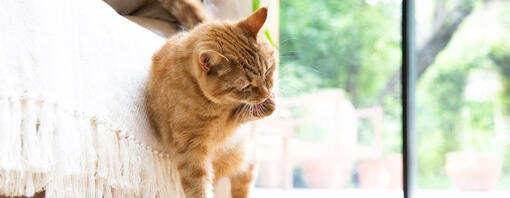
Excessive grooming can be a response to changes in your cat’s environment they’re struggling to come to terms with.
Your cat is naturally on a mission to keep their coat clean, at times spending a lot of their waking time self-grooming. But sometimes their behaviour can take a turn into excessive cat grooming. Find out why this happens and what you can do to help your cat.
What is cat overgrooming?
Overgrooming in cats occurs when your kitty starts grooming excessively – licking their fur so much that it causes skin inflammation, sores or hair loss. In extreme cases a cat might even start to bite areas of skin. Sometimes you will notice your cat overgrooming, or damage to the skin, or a patchy coat, but in other cases you may simply find the evidence of this, such as clumps of hair behind the sofa.
What causes excessive cat grooming?
The two main causes for grooming too much are behavioural, when the cat starts licking excessively as a form of stress-relief (also known as psychogenic alopecia), and medical, when skin allergies or skin parasites are the main culprit.
Cat overgrooming as a stress-relief mechanism
It might not be obvious to you, but the home environment can become very stressful for your cat. The particular stressors for a feline psyche don’t always register on our human scale, but they can cause just as much havoc as one of our work disputes or an urgent last-minute job.
The biggest cause of stress for cats is other cats – a multicat household or other cats in the neighbourhood. By nature, cats are solitary creatures and they can find living with other cats very stressful. Often this does not manifest as aggression towards other cats and they may happily snuggle up together at home, but your cat may struggle with the stress and turn to overgrooming.
Some of the other most stressful events for a cat include:
- Moving home
- New furniture
- New family member
- New schedule
How do you treat overgrooming in cats
Before making a change to your lifestyle, consider if it is likely to affect your cat. These creatures of habit will be the first to react to something new going on in your life. However, the same love for routine can point the way to relieve methods for excessive cat grooming.
No matter how big or small the change, make sure you pay attention to how your cat is reacting to it. In some cases, it is a good idea to keep as many things consistent for your cat as possible. Stick to the normal feeding schedule, to the same location and the same bowl and your cat will likely appreciate you showing them a bit of stability.
Your cat should have the opportunity to retire every once in a while, from trying to make amends with all the changes in their new environment. Finding a place where the cat can go and rest is essential in keeping them calm and away from any overgrooming ideas.
Sometimes all your cat needs is a little extra attention to help them relieve the stress. Encourage them to chase and pounce indoors, have plenty of soft toys at their disposal and get the fishing rod toy out more often. If they like going outside then try to ensure they have outdoor access as an outlet for their hunting behaviour and to reduce their stress.
Sometimes if the reason why your cat is stressed cannot be directly addressed, the vet might recommend treating the symptom itself with anti-anxiety medication. Don’t hesitate to ask your vet for help if the excessive cat grooming habit doesn’t go away. Some medications are in the form of tablets – such as Zylkene – whereas others such as Feliway and Pet Remedy are more ‘natural’ medications that come in the form of diffusers and sprays.
However, in other cases, you can also trial a few different environmental modifications and see how the cat reacts.
Do I need to take my cat to the vet for overgrooming?
Allergies or parasites can considerably change your cat’s grooming schedule.
Lice, fleas, mites, ticks – these almost invisible creatures can make your cat’s skin extremely itchy which can lead to a second problem, that of excessive grooming.
If you think this is the reason why your cat is incessantly licking their coat, speak to a vet for advice for the most effective treatments. Our cat fleas and ticks article will provide an overview of the causes and possible solutions for these pesky parasites.
However, it is important to keep in mind that when it comes to fleas and ticks, prevention is your best ally. Keep up with the regular preventive treatments against fleas, worms and other parasites and you are likely to avoid the problem altogether. It is also important to treat the environment on a regular basis – 95% of fleas are contracted this way, so environmental management as well as treatment of the pet itself are very important.
If you're looking to read more about cat grooming, read our helpful guide.
Are some breeds more prone to over-grooming?
It has been noticed that some cat breeds such as the Abyssinian and the Siamese are more likely to groom excessively. However, there is no agreement on how common this behaviour is among these breeds. Given the right conditions, such as environmental changes or a skin allergy, cats regardless of breed might choose over-grooming as their soothing solution.
Is it cat overgrooming or hair loss?
Bald patches on your cat’s coat are a common sign of excessive cat grooming. However this is not the only cause why your cat’s fur is not as thick as it used to be. Another possible reason is a condition called alopecia or cat hair loss. An unhealthy diet or even a hormonal imbalance can lead to your cat losing some of their sleek fur. Your vet will be able to diagnose the condition, understand what is causing it and recommend ways to treat it.
Whatever the cause of their change in behaviour, solving the problem of cat overgrooming can take time. So be patient, work closely with your vet and soon enough your cat’s fur will get back to normal.
A change in your cat’s routine can also lead to anxiety. Find out more about how to spot and treat cat anxiety in our in-depth article.


